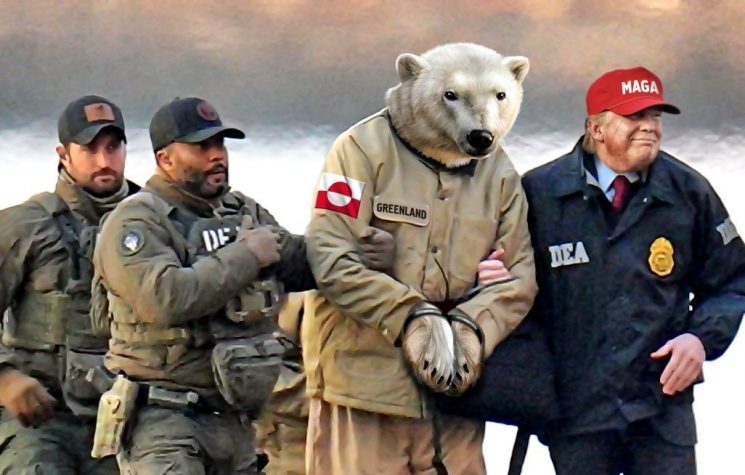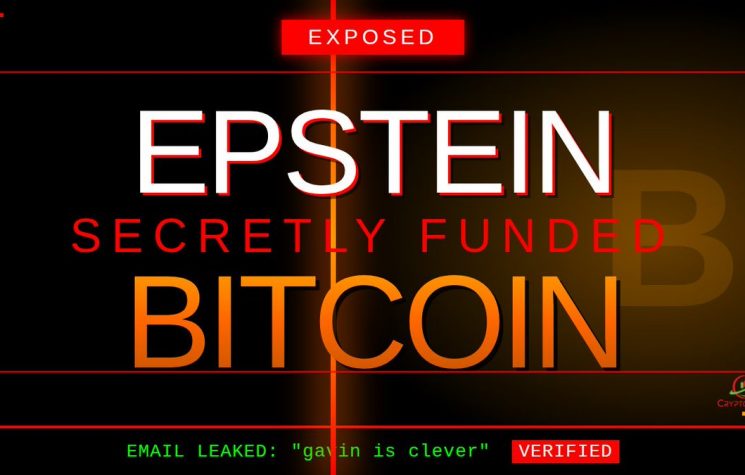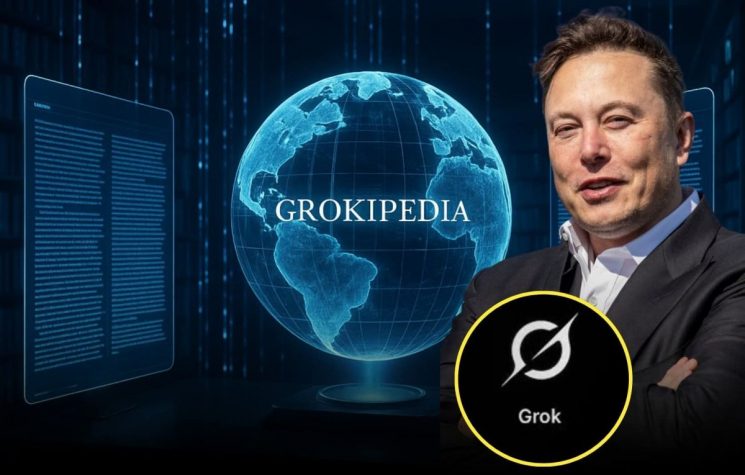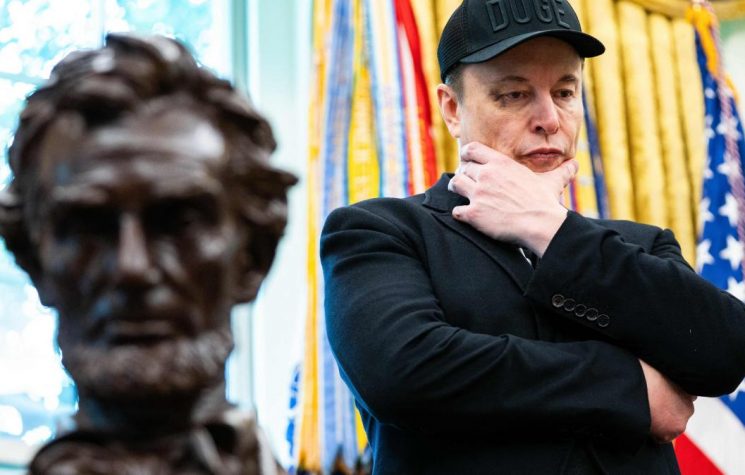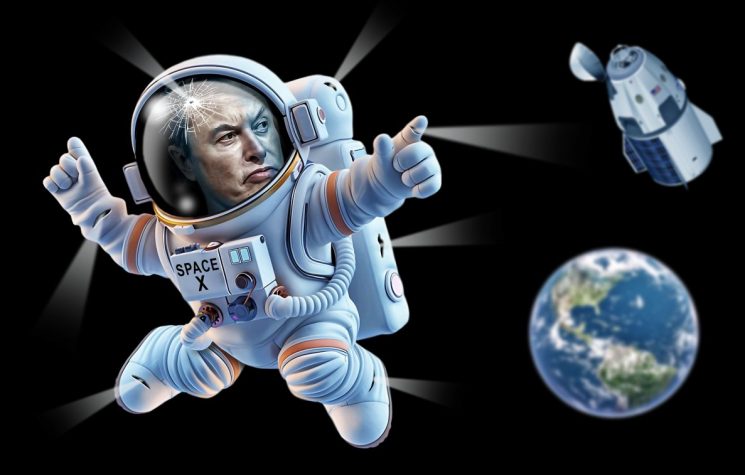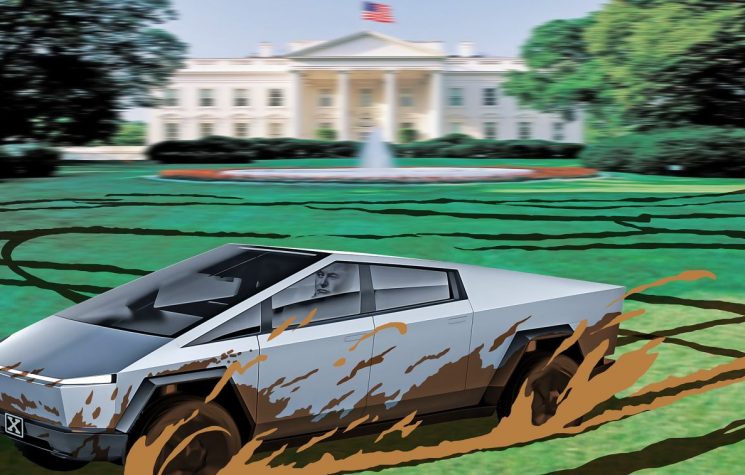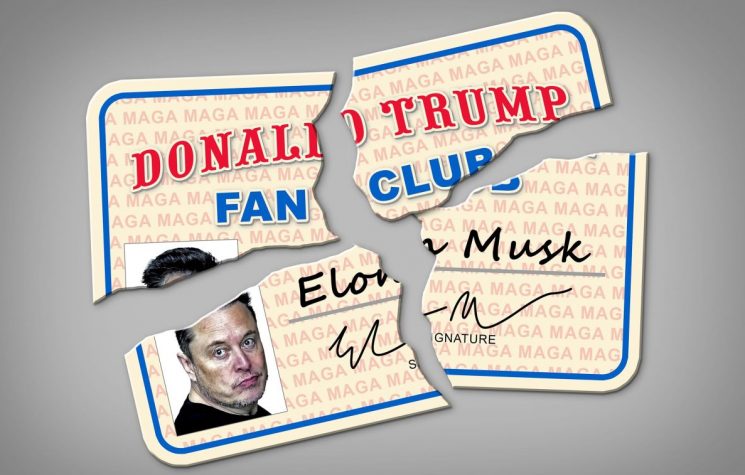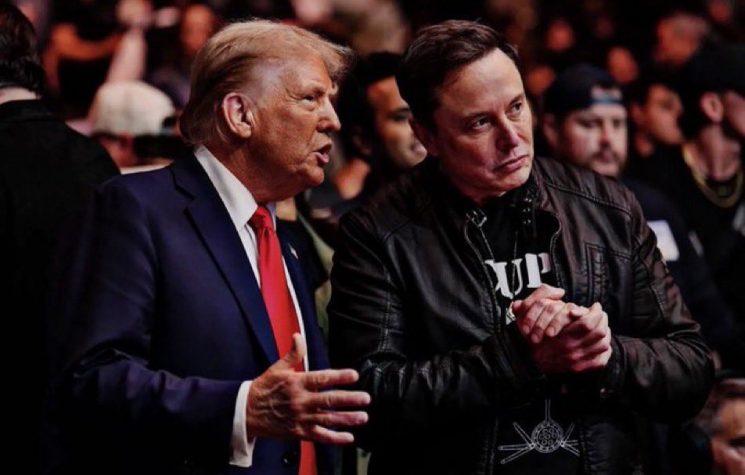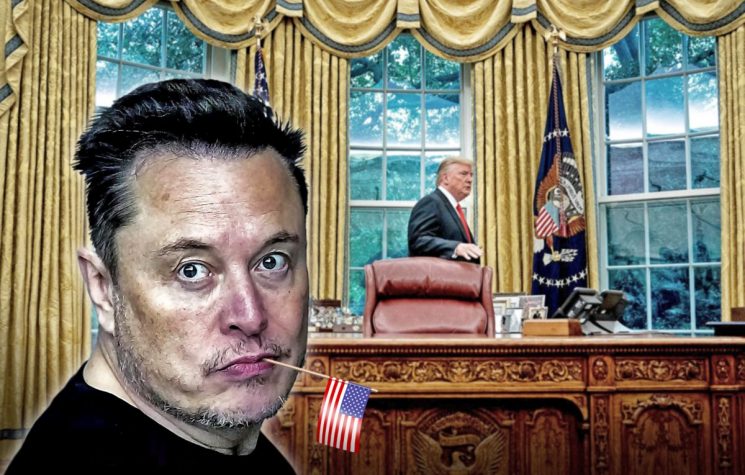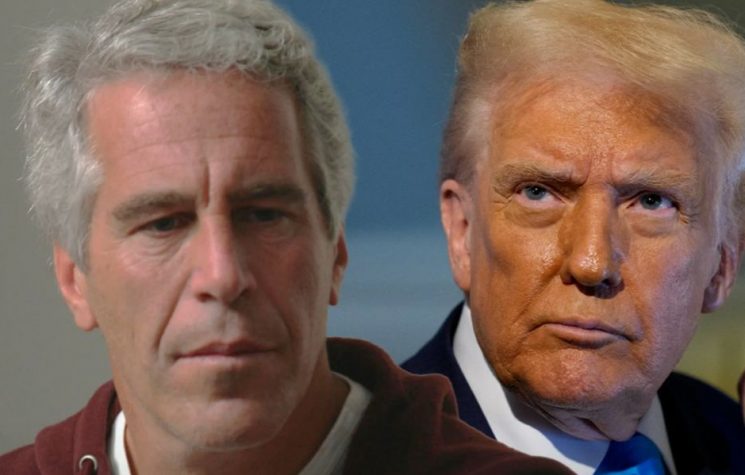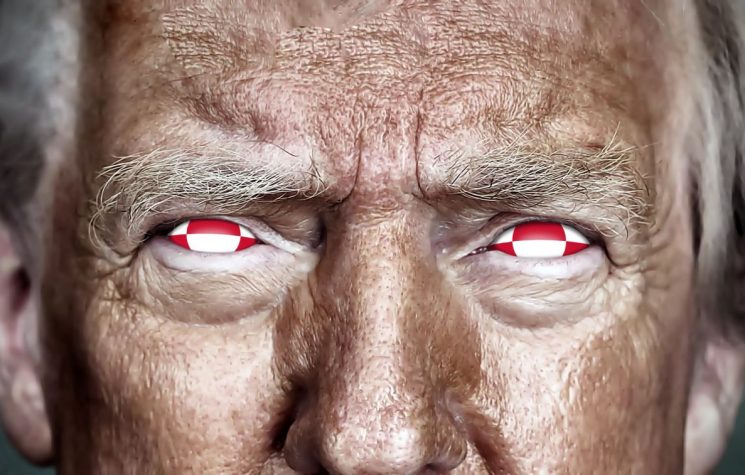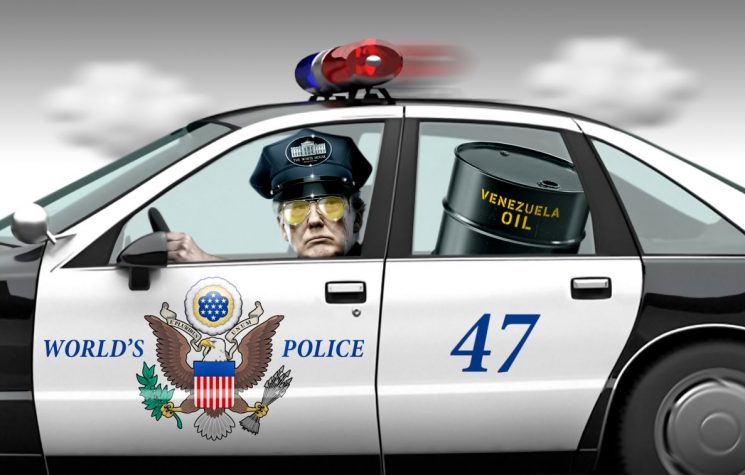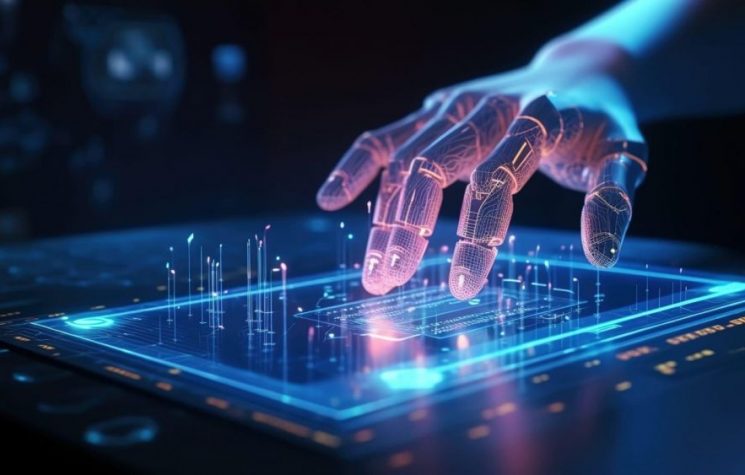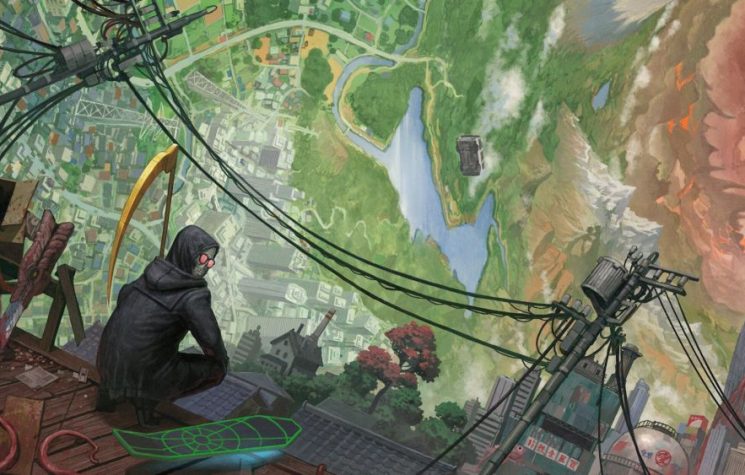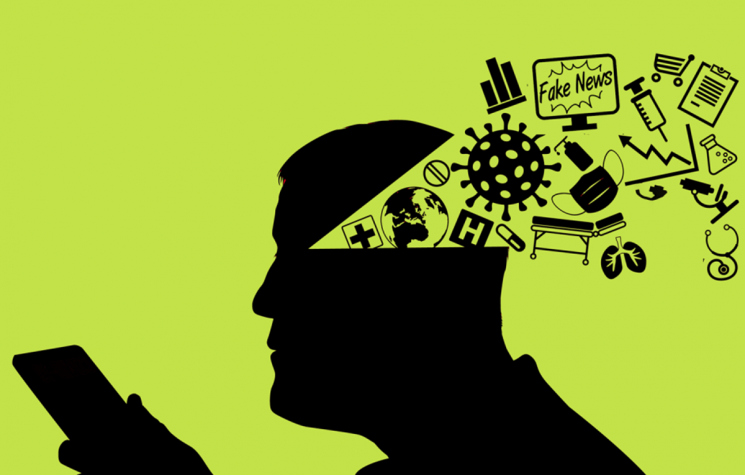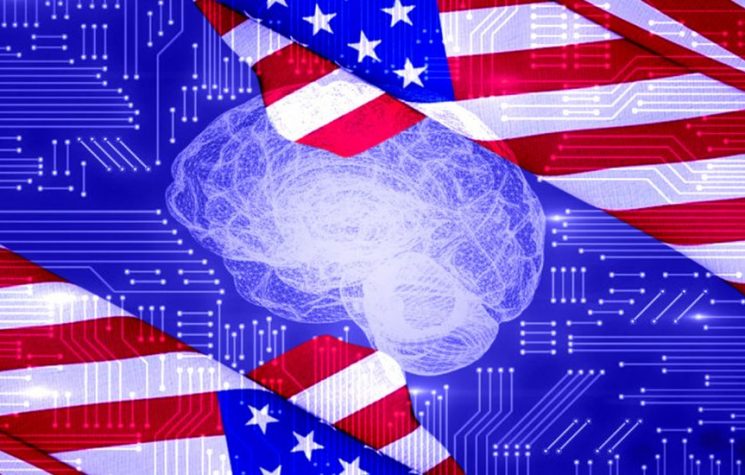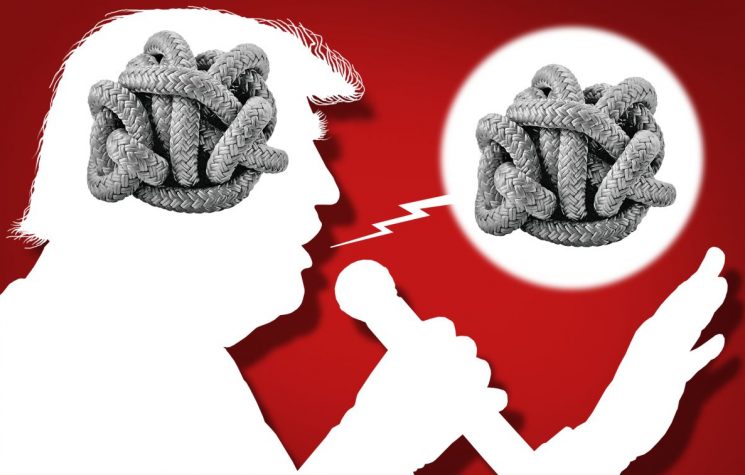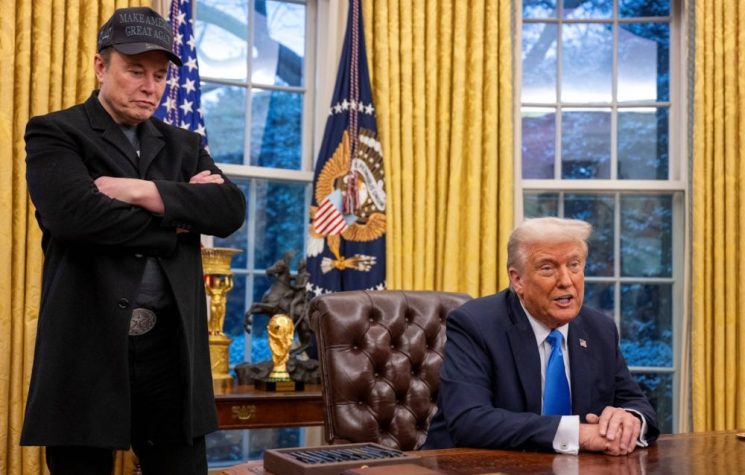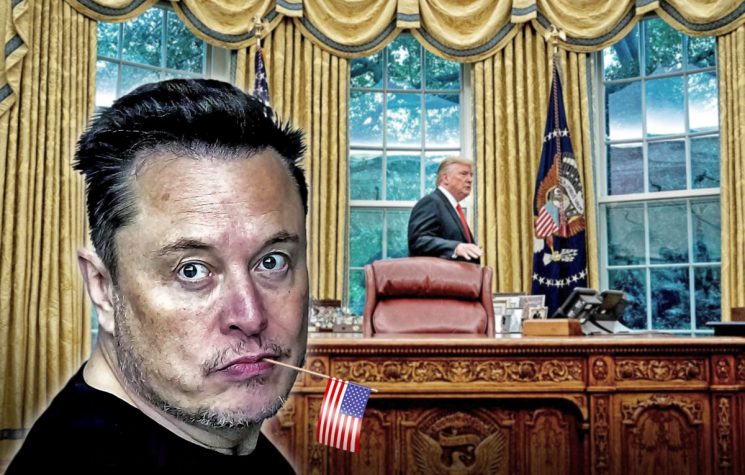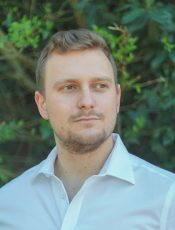Who would have thought it: Donald Trump has chosen Elon Musk as a member of his new cabinet. Nothing more American than that.
Contact us: info@strategic-culture.su
A man from…where?
There is a little story that is often told in the USA, the ‘land of opportunity’: in an ordinary white garage in an ordinary house in an ordinary town, an ordinary young man has a good idea and, by a stroke of luck, his idea succeeds and he becomes a billionaire. The end.
Mr Musk is another one of those entrepreneurs who have made it all his own thanks to his ability to guess what the market wants. He guesses Paypal, he guesses Tesla, he hits the jackpot with SpaceX, he goes through Twitter and finds it on sale and buys it with a couple of clicks, some humanoid robot serves him coffee, and now he even finds himself in the US government without even running for office. The best. Nothing ever goes wrong for him.
Everyone, let’s reflect.
As Gennaro Scala recently wrote, ‘who hasn’t wanted to buy a fantastic Tesla with such futuristic lines, which in its cheap version costs just $40,000? As for SpaceX, who has not at least once in their life planned a trip into space? Instead, Starlink is used by farmers around the world to keep an eye on grazing herds from the comfort of home. But as we know, this satellite network has also performed other functions in the Ukraine. Are we sure this is all normal?
Musk is a mask of financial capital, a true businessman of media success. He is the man who sells you the future door to door, convincing you that the new model is better than the previous one, more innovative. He is the man who works for the state, where the state is now completely privatised, because that is what it is: Musk has entered the field of communications, space research, social media, transport, robotics, artificial intelligence, finance. All, from first to last, favourite products of Capital. All, without exclusion, strategic sectors that in the USA have been brought to the mercy of private corporations, one after the other, so that the state can now operate arbitrarily over them, without the problem of boring democracy. By privatising everything, you can still govern, just as long as the best private buyer is still you, Mr State.
So, is it possible that this Pretoria boy had all this ‘luck’? Or, better still, is it possible that it is ‘just luck’?
Tesla and the electric vehicle revolution
Tesla, founded by Musk, has had a significant impact on the automotive industry and global energy policies. The introduction of the Model S in 2012 marked the beginning of a radical shift towards the adoption of battery electric vehicles, prompting governments to promote policies for a sustainable energy transition. Politicians around the world, attracted by Tesla’s economic promise, have sought to establish factories of the brand in their countries. Among the leaders Musk has interacted with in recent years are French President Emmanuel Macron, Turkish President Recep Tayyip Erdogan and Indian Prime Minister Narendra Modi.
China has also been a key player in Tesla’s growth. In 2018, Chinese President Xi Jinping allowed Tesla to become the first foreign carmaker to retain full control of a Chinese subsidiary. The construction of a factory in Shanghai in 2019 consolidated Tesla’s position in China, now the company’s second most important market. However, with the rise of local manufacturers such as BYD, Tesla’s market share in China has fallen to 6%, compared to BYD’s 35%.
This bilateral relationship highlights a delicate dynamic: while China could now do without Tesla to dominate the electric vehicle market, Musk cannot ignore China’s economic weight for his company’s future.
Let’s not focus on cars, which are a small percentage of Musk’s industries: what is of interest is technological research, which is also favoured by the saturation of market sectors. We have also seen examples of this in the SMO in the Ukraine, when photos and videos of the Tesla Tank Cybertruck used in conflict zones surfaced, and even Ramzan Kadyrov, the leader of Chechnya, has his own, apparently remotely disabled from Tesla HQ. There are strategic geometries that are redefined through the cover of a well-fed collective imagination. It sometimes happens that the most precious and delicate things are hidden… by putting them out in the open for all to see, but no one notices.
Transhumanism as a political figure
Musk’s transhumanist aims are neither a secret nor new. He is the man who made brain chips, human-machine connections, humanoid robots, etc. ‘pop’. If previously these topics were for a few insiders or enthusiasts, with Musk they have become a media product to be consumed.
On 30 January 2024, Musk announced the first Neuralink brain implant on a human being. The American billionaire then added another post, writing: ‘Neuralink’s first product is called TELEPATIA. It will allow you to control your phone or computer and, through them, almost any device, simply by thinking. The initial users will be those who have lost the use of their limbs. Imagine if Stephen Hawking could communicate faster than a typist. That is the goal’. The next step is to make these chips communicate with artificial intelligence. And here we are in the era of transhumanism.
As Stephen Hawking himself wrote, ‘Artificial intelligence could develop a will of its own. And it will be extremely good at achieving its goals. If these are not aligned with ours, we will be in trouble. You’re probably not an ant-hater who stomps on these insects out of malice, but if you’re in charge of a hydroelectric project and there’s an ant hill in the region that you have to flood, it’s going to end badly for the ants. Let’s try not to put humanity in the position of ants. AI could either be the best thing that ever happened to humanity, or the worst.
Far from demonising AI tout court, what is interesting to understand is the broad scope of this type of research and its political as well as strategic effect. Projects like this completely redefine the criteria of democracy, of political participation of free will, of the definition of being human or not.
You don’t put a man like Musk in government by pure chance. Beyond the ‘pro-life’ electoral proclamations, so to speak, made by Trump, one has to wonder what a man who is pro-life is doing inside the entourage of the new American president. They will get over it, or not, the ‘right-wing’ voters from the Catholic world, especially on the East Coast, who have faced numerous battles on bioethics and bio-law, not only on the issues of gender, abortion and euthanasia, but also on experimental medical research, of which Musk is a passionate philanthropist. It is probable to believe that the research carried out by his laboratories will not stop in the face of some protest. Michael Foucault’s Lectures on Biopolitics come to mind, when in the Paris years he predicted that the introduction of total control over the living body would not necessarily take place by force, but would pass through the subtle ploy of gradual approval by citizens, who would come to legitimise and even justify any ethical violation, without realising it, in the name of ‘science’.
The best strategic investment
Let’s face it: Trump, with business, has a way with it.
Getting Musk on the electoral victory bandwagon was a real businessman’s move. In one fell swoop, and probably with an agreement that had already been made beforehand, Trump has guaranteed himself control of a good slice of strategic sectors that are undergoing a strong development phase. Especially when it comes to the domains of cyberspace and outer space, Musk is an undisputed leader. And, as such, in September 2023 he transferred part of the control of Starlink to the Pentagon, a move that became crucial for the success of some of the attacks by Ukraine in the Donbass during the SMO. The same Musk who a few months earlier, in early 2023, had offered himself as a mediator for the conflict, even inviting the Pentagon to foot the bill for the satellite internet terminals he had donated to Kiev.
Musk is the man who has taken social networking to a more refined level of hybrid warfare, surpassing Mark Zuckerberg in style and numbers. The purchase of Twitter, renamed X, worth a whopping $45 billion, became a so-called ‘free’ social network, changing the rules of the community, with less censorship of content. This aspect proved to be a winning move. X has been elected as the preferred political communication space, becoming the common square in which to share and find information, but also a laboratory for sociological analysis of political mutations.
Suffice it to say that a single Musk tweet can make the dollar exchange change, or cause the success and failure of influencers, companies, and politicians. The level of use of the media weapon has reached the next stage. Infowarfare takes on an inescapable centrality.
Everything, then, changes, because it is no longer realpolitik that counts, but virtualpolitik.
In terms of trade and finance, the strategic importance of the Chinese market gives Beijing some influence over Musk. Xi Jinping could see in Musk a possible mediator with the United States, also considering the trade tensions with Washington. The Trump administration, for example, has tightened tariffs on Chinese goods, a policy that could continue in a possible second Trump term.
What matters is not ‘who Elon Musk is’, what matters is the power structure that he commands today and that another person could command tomorrow. The power of this new global techno-fascism is well expressed by the global dramatisation of the fight of a relatively powerful nation-state against a mere foreign individual for the mere fact of being a global techno-fascist: this was the case on 31 August this year, when Network X was suspended in Brazil by the Supreme Court because its owner refused to delete network accounts whose content spread fake news, seriously violated basic democratic values and incited hatred, violence and even murder against a huge mass of people. Could one have imagined ten years ago that a lone individual, a foreigner to boot, could oppose a sovereign state?
In this context, the tycoon has met several times with senior Chinese officials, including Xi and Premier Li Qiang, which puts him in a position of a potential mediator. In addition, according to some sources, Russian President Vladimir Putin has reportedly asked Musk to restrict the Starlink satellite service in Taiwan to favour Beijing’s interests. This episode reflects how Musk often finds himself involved in issues that go far beyond the boundaries of technology.
SpaceX is another pillar of his global influence. With the reusable Falcon 9 rockets and the Starship project, Musk revolutionised space travel, making it significantly cheaper. SpaceX has famously secured multi-billion dollar contracts with the Pentagon and NASA, strengthening the company’s role in US national security.
At the same time, Starlink, the satellite Internet service operated by SpaceX, is a global network that provides connectivity in remote and inaccessible areas. Musk’s personal control over this infrastructure has raised concerns, as in the case of its use in Ukraine.
The potential political use of Starlink is also evident in the Taiwanese context. The island, which Beijing claims as part of its territory, started to develop its own satellite system to reduce its dependence on Musk, after the latter had expressed pro-Chinese positions on the Taiwan-Beijing conflict.
In the field of artificial intelligence, Musk launched xAI, an initiative that aims to compete with giants such as OpenAI and Google. xAI’s language model, called Grok, has raised concerns about its ability to generate controversial content, including political propaganda and instructions for dangerous activities. Despite the criticism, Musk continues to invest heavily in AI, building an unprecedented technological infrastructure, such as the world’s fastest supercomputer located in Memphis.
Artificial intelligence is also a recurring topic in Musk’s meetings with world leaders, such as Italian Prime Minister Giorgia Meloni and Israeli Prime Minister Benjamin Netanyahu. This shows how Musk intends to integrate AI technology into his geopolitical and industrial initiatives.
In the US, many of his companies, such as Tesla and SpaceX, depend on multibillion-dollar government contracts, while abroad, his proximity to Xi Jinping and Vladimir Putin puts him in a position of potential compromise. Musk’s power derives not only from money, but from his ability to control strategic infrastructure and sensitive information. His behaviour, often unpredictable and motivated by self-interest, raises concerns about how appropriate it is to entrust so much power to a single individual.
We must therefore ask ourselves, indeed we should ask our character: which mask will you wear today? Musk seems aware of this duality. And perhaps this is precisely what Trump wants. From mar-a-lago parties in the Donald’s inner circle to DOGE – Department Of Government Efficiency, the career is only just beginning.












